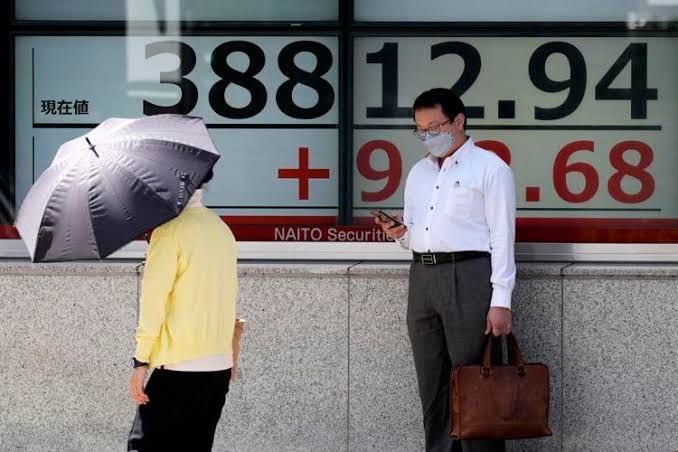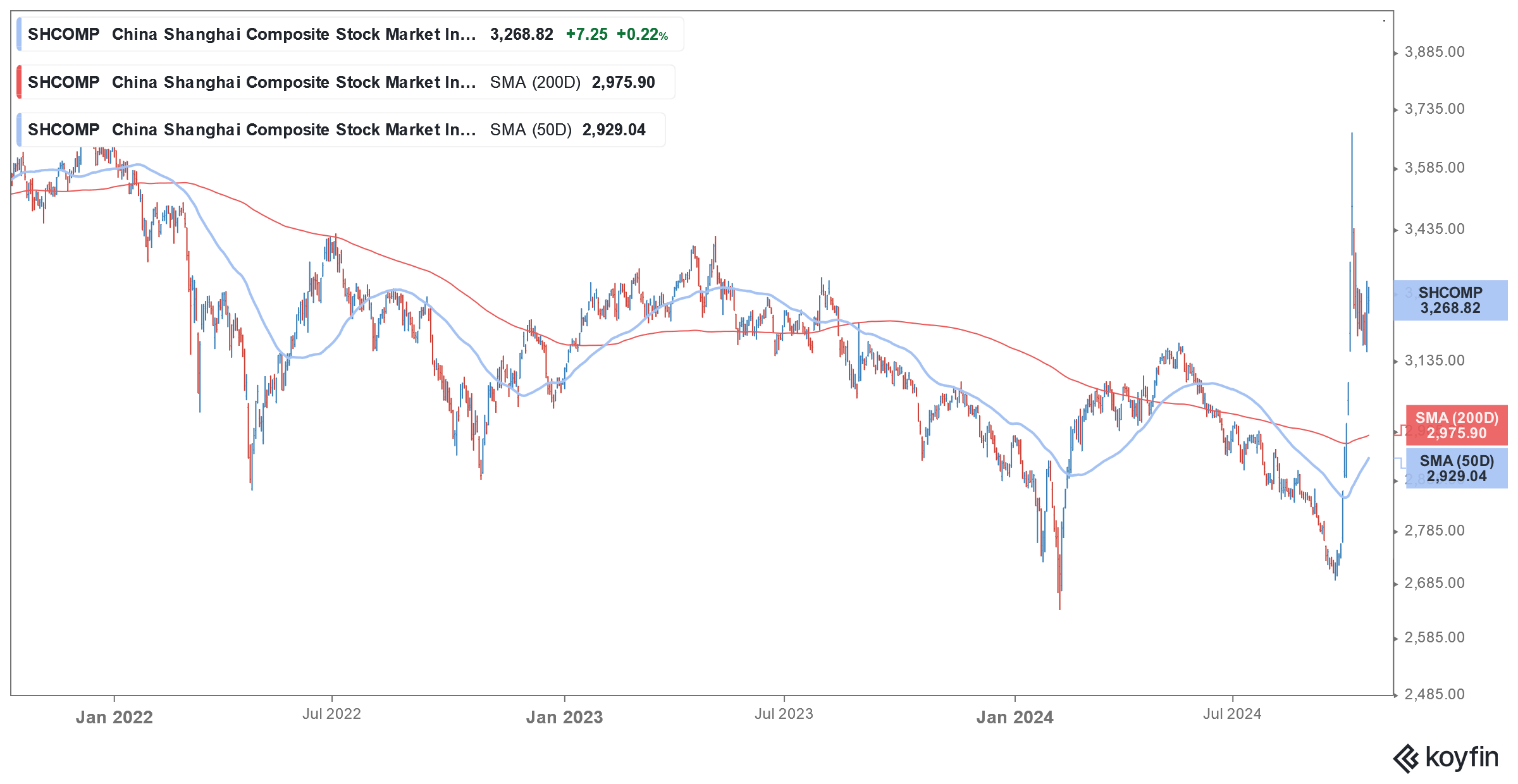
Hong Kong Shares Fall Even as China Cuts Interest Rates
- Economy
- October 21, 2024
- No Comment
- 109
Please note that we are not authorised to provide any investment advice. The content on this page is for information purposes only.
Hong Kong-listed shares closed lower today while their counterparts in the mainland were flat even as China lowered the 1 and 3-year loan prime rate (LPR) by 25 basis points to 3.1% and 3.6% respectively.
The world’s second-largest economy has been gradually announcing a flurry of stimulus measures for nearly a month now as it tries to contain the slowdown. The recent rate cut announcement is not a surprise and People’s Bank of China (PBOC) Governor Pan Gongsheng talked about it last week only.
Last week, the PBOC announced two funding schemes on Friday that will pump over $110 billion into the stock market through fresh monetary policy tools. The country was widely expected to miss the 2024 GDP growth forecast of 5% and has been announcing a mix of fiscal and monetary policy measures to support growth.
China has been announcing stimulus measures
Last month, Pan announced that PBOC would cut reserve requirement ratio (RRR) which is the cash banks need to have on hand by 50 basis points. While Pan did not spell out the timeline for the cut, he said that the Chinese central bank would cut the RRR by another 25-50 basis points by the end of the year. Pan also announced that the PBOC will cut the 7-day repo rate by 20 basis points.
At that meeting, Pan also announced a 0.2-0.25% cut in the loan prime rate could follow, without specifying whether it would be done for the one-year or five-year tenure. With today’s announcement, the Chinese central bank has delivered on that commitment also.
China Has Pledged Support to Its Economy
Earlier this month, China’s Minister of Finance Lan Fo’an pledged more support for the economy but refrained from providing specifics on the size of the stimulus.
At his press conference, the Chinese finance minister outlined four key policies to revive the world’s second-largest economy. The country will increase support for debt-laden local governments and also issue special treasury bonds which it would use to strengthen the capital of state-owned banks. Strengthening the balance sheet of state-owned banks would help them increase their lending.
China Announces More Fiscal Measures to Support Its Slowing Economy
China would also help local government funding to stop the downturn in real estate by allowing them to issue special bonds for land purchases. It would also allow affordable housing subsidies – which were hitherto meant for new construction – to be used for existing housing inventory. The country is also considering cutting taxes on properties but did not specify what taxes it was looking to cut.
Finally, the country would provide assistance to students to spur spending.


Chinese Financial Minister Says There Is Enough Room for Fiscal Stimulus
At his press conference, Lan said that more stimulus measures are on the table and stressed, “There are other policy tools that are being discussed that are still in the pipeline.” He also sought to allay fears that China’s high debt leaves little scope for fiscal stimulus and emphasized that “there is still relatively big room for China to issue debt and increase the fiscal deficit.”
Chinese stocks have been underperforming global peers for the last many years and the Hang Seng Index fell in the previous four years. It lost over half of its value erasing over $5 trillion in market cap. Earlier this year, the size of Hong Kong equity markets fell below the Indian stock market – thanks to the impressive gains in the latter over the previous couple of years.
Meanwhile, the sentiments towards Chinese stocks have improved after the country announced various monetary and fiscal measures that would help it meet the GDP growth targets that the Communist Party set at 5% for this year.
Chinese Stocks Have Rebounded
Many US investors shunned Chinese tech stocks in 2021 after the country’s brutal tech crackdown. While the country has since sounded a more reconciliatory tone towards large tech companies, for many investors Chinese tech stocks have turned “uninvestable” considering the policy uncertainty.
That said, many US hedge funds including David Tepper’s hedge fund Appaloosa Management and Michael Burry’s Scion Asset Management increased stakes in Chinese stocks this year. Tepper in fact doubled down on Chinese stocks after the Fed’s rate cut and the bet has paid off amid the steep rise in Chinese shares.
China Needs To Keep an Eye on Its Debt Also
While China has been announcing a flurry of measures, including fiscal spending, analysts believe that the country would need to be mindful of its already high debt pile. Speaking at the FutureChina Global Forum in Singapore, Bridgewater Associates founder Ray Dalio said, China would need “beautiful deleveraging” along with the stimulus measures.
“I think the changes that are taking place are terrific changes, but you still have to do the debt restructuring,” said Dalio.
He warned against throwing too much credit and money into the economy and said, “You need to do it correctly, and that’s as part of a restructuring. That becomes the challenging part of it. I think that will be the test.”
Meanwhile, after the initial bump. Chinese stocks have come off their 2024 highs. The country now faces a tough balancing task as on one hand, it needs to support its sagging economy while on the other hands, it needs to ensure that its debt situation remains stable as a soaring debt pile could lead to long-term risks.
#Hong #Kong #Shares #Fall #China #Cuts #Interest #Rates









